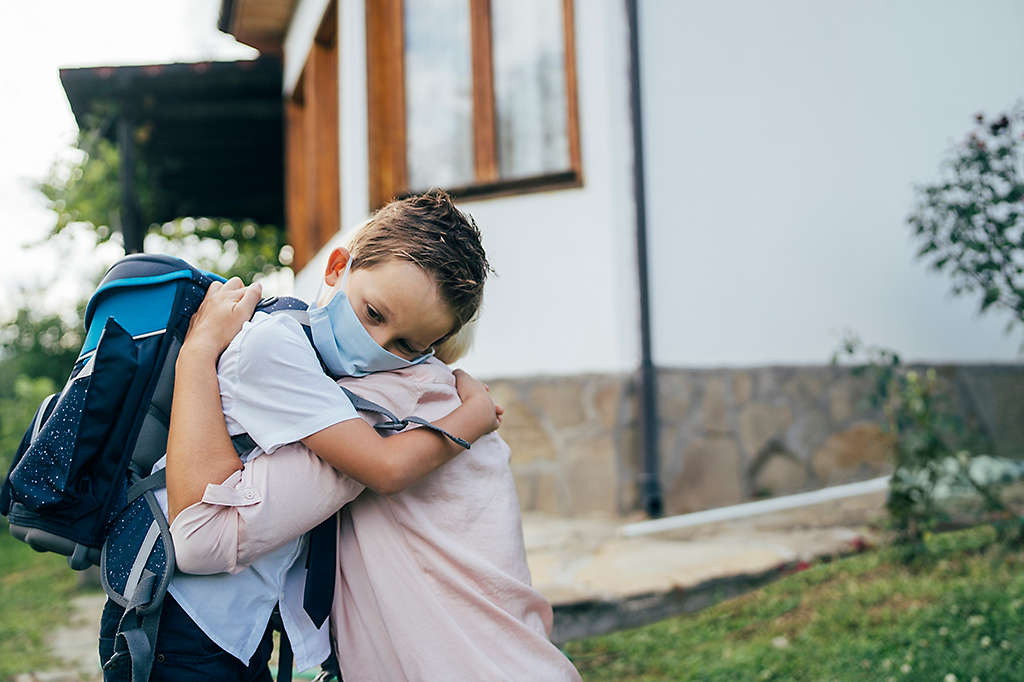Corporate Social Responsibility
Inaugural “State of Grief” report looks at the state of grief support at home, in school, and at work
New York Life | December 8, 2022

The New York Life Foundation, one of the largest corporate funders of bereavement support, today released its inaugural “State of Grief” report. The report features new research exploring COVID-19’s impact on grief support, parents’ views on bereavement support in schools, and insights on workplace bereavement policies. In addition, the report includes perspectives from the New York Life Foundation and its network of bereavement experts that translate the data into actionable guidance for creating more grief-sensitive environments at home, in school, and at work.
In so many ways, COVID-19 has served as an unprecedented inflection point for the bereavement support field, underscoring the importance of recognizing and acknowledging grief.
New York Life Foundation President Heather Nesle and Vice President Maria Collins.
In the opening letter of the report, New York Life Foundation President Heather Nesle and New York Life Foundation Vice President Maria Collins write, “In so many ways, COVID-19 has served as an unprecedented inflection point for the bereavement support field, underscoring the importance of recognizing and acknowledging grief, particularly in children, and being present for grieving families each and every day.... For us, this seemed like the right moment to take a deeper look at the grief support landscape to explore opportunities for expansion and look at what needs to improve so that, together with our bereavement partners, we can meaningfully advance the field.”
The report and survey results focus on three critical areas of grief support:
At Home
- 71% of adults—and 79% of those who lost someone close to them from COVID-19—say they want a more open national dialogue about death and loss
- About half of adults (51%) say the pandemic has prompted them to have conversations with family and/or friends on death and loss
At School
- 71% of parents, and an even higher percentage of Black parents (83%), think schools should give parents more information and guidance on how to help their kids through traumatic events
- Nearly 7 in 10 (69%) of parents agree that grief support should be a priority for schools
At Work
- 30% of employed Americans are unsure of their workplace bereavement leave policy
- When asked what enhancements they would like to see to their workplace’s bereavement efforts, respondents cited paid bereavement leave (67%), extending leave for bereavement (66%), flexible bereavement leave (65%), an employee hardship relief fund (63%), and enabling employees to define what constitutes a “loved one” (58%) as the top choices
As the pandemic illuminates the need for greater bereavement support, the report offers insight and tips from the New York Life Foundation’s extensive network of bereavement experts including the National Center for School Crisis and Bereavement, the Trauma and Grief Center (TAG) Center at the Hackett Center for Mental Health in Houston, and Evermore.
Reflecting on the pandemic’s impact on grief support, Nesle notes: “Historically, we have been a grief-averse society, but our survey results indicate that the pandemic may prove to be an inflection point, dramatically underscoring the need for more grief awareness, understanding, and dialogue. We all need to embrace this moment to encourage open conversations and practical support—at home, in school, and in the workplace—so people will be properly prepared, cared for, and supported when a loved one dies.”
The full “State of Grief” report is available here.
Read the entire press release here.
Check out the survey results here.
This poll was conducted by Morning Consult from Sept. 16 to Sept. 19, 2021, among a sample of 4,400 general population adults (73 opted out from participating due to the survey’s topic). The interviews were conducted online, and the data was weighted to approximate a target sample of adults based on gender, educational attainment, age, race, and region. Results from the full survey have a margin of error of plus or minus 2 percentage points.
RELATED CONTENT
Go back to our newsroom to read more stories.
Media contact
Lacey Siegel
New York Life Insurance Company
(212) 576-7937
Lacey_S_Siegel@newyorklife.com
